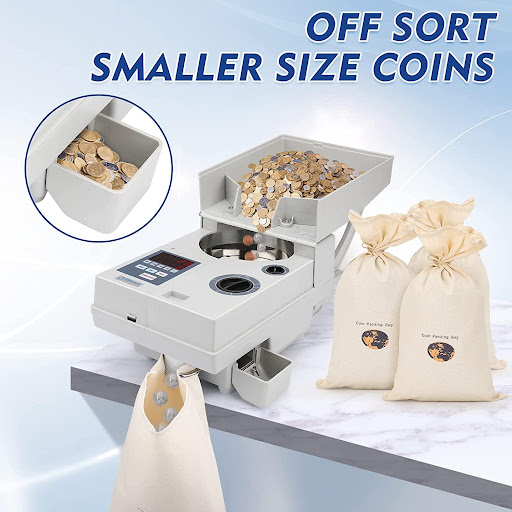If you’re in business, chances are you’ve had to deal with coins at some point. And if you’ve had to deal with a lot of coins, then you know how time-consuming and tedious it can be to count them all by hand. That’s why a coin counter can be such a valuable tool for businesses of all sizes.
There are different types of coin counters available on the market, each with its own advantages and disadvantages. In this blog post, we’ll discuss the different types of coin counters and how to choose the right one for your needs. We’ll also touch on the benefits of using a coin counter in your business.
The Different Types of Coin Counters
Manual Coin Counters
Manual coin counters are the most basic type of coin counter, and they are typically the most affordable option as well. As the name suggests, manual coin counters require the user to physically count and sort the coins into the appropriate denominations. This can be a time-consuming process, but it is ideal for businesses with low volume counts.
Electric Coin Counters
Electric coin counters are a step up from manual coin counters, as they automate the counting process. Electric coin counters typically have a hopper that can hold a large number of coins, and they use sensors to automatically count and sort the coins into the appropriate denominations. This can be a faster and more accurate option for businesses with higher volume counts.
Coin Sorters
Coin sorters are similar to electric coin counters, but they also include a sorting function that separates the coins into separate bags or bins based on denomination. This can be a helpful feature for businesses that need to sort their coins for storage or transport.

How to Choose the Right Coin Counter for Your Needs
Consider Your Business Volume
If you have a business with a high volume of transactions, you’ll need a coin counter that can handle a large amount of coins. Electric coin counters are the best option for businesses with high volumes, as they can count large amounts of coins quickly and accurately.
Consider Your Business Needs
Different businesses have different needs when it comes to coin counting. If you need to sort your coins by denomination, you’ll need a coin sorter. If you need to count mixed denominations, you’ll need an electric coin counter that can handle different types of coins.
Consider Your Budget
Coin counters can range in price from around $30 for a basic manual coin counter to over $1,000 for a high-end electric coin counter. Consider your budget when choosing a coin counter so that you don’t spend more than you need to.
The Benefits of Using a Coin Counter
Improved Accuracy
A coin counter can help improve the accuracy of your cash counting procedures. With a coin counter, you can be sure that each and every coin is counted correctly, which can save you time and money in the long run.
Increased Efficiency
A coin counter can also help increase the efficiency of your cash counting procedures. With a coin counter, you can count large volumes of coins quickly and easily, which can save you time and money in the long run.
Reduced Costs
A coin counter can also help reduce the costs associated with your cash counting procedures. With a coin counter, you will no longer need to hire someone to manually count your coins, which can save you money in the long run.
Conclusion
If you’re looking for a way to improve the accuracy and efficiency of your business, a coin counter may be the answer. But with so many different types of coin counters on the market, how do you choose the right one for your needs?
Consider your business volume, needs and budget when making your decision. And remember, the benefits of using a coin counter include improved accuracy, increased efficiency and reduced costs. So if you’re looking for a way to streamline your business operations, a coin counter is definitely worth considering.







